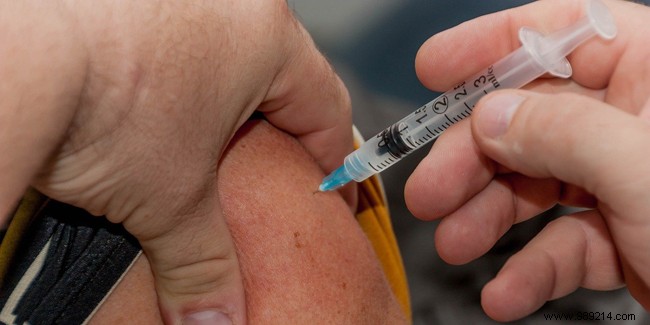
At a time when the Covid-19 pandemic is causing consequences in the world that can be serious in terms of health, even lead to death, which disrupt our social and economic life, and when vaccines to combat this disease have been found in record time, it is worth remembering that this type of treatment, since it has existed, is the only one that has made it possible to eliminate certain diseases, some of which are fatal. Thus, in France, very serious diseases such as poliomyelitis or diphtheria have been eradicated thanks to vaccination.
The numbers speak for themselves. Throughout the world, certain diseases, most serious and even sometimes fatal infections, have disappeared thanks to vaccination. This is the case for smallpox worldwide, for which no case has been recorded since 1977, or for example poliomyelitis and diphtheria in France.
As indicated by the World Health Organization (WHO), vaccination prevents nearly 3 million people a year from dying of a serious disease. Vaccines allow you to protect yourself, but also to protect others against viruses and bacteria that are very dangerous for humans.
Thus, poliomyelitis, due to viruses which are transmitted by consuming contaminated food, water or other drinks, which was, before the arrival of a vaccine to fight against it, one of the first causes of he appearance of handicaps in children in particular, which sometimes led to death, has virtually disappeared in France thanks to vaccination. No cases have been detected in the country since 1997.
The vaccine is the only remedy that has eradicated poliomyelitis in France, especially since there is no other type of treatment to combat the virus that causes this disease. This is why, in order to stop its possible reappearance in our country, poliomyelitis is a disease that must be declared in France.
Another example of a disease that has disappeared in France thanks to vaccination:diphtheria. At the beginning of the 20 e century, this disease caused by a bacterium, highly contagious and transmitted by coughing and sneezing, was the cause of the death of thousands of children in particular.
Vaccination against diphtheria, compulsory since 1945, has made it possible to eradicate this serious disease. Like poliomyelitis, diphtheria is one of the diseases for which declaration is compulsory in France.
In France, many serious diseases have almost disappeared thanks to vaccination. However, the microbes that cause these diseases still exist. This is why it is important to continue to be vaccinated against these pathologies. However, today, vaccination coverage against these diseases tends to decrease in some countries.
Tetanus, for example, is one of those diseases that have practically disappeared in France. But cases, admittedly very rare, still occur, particularly in people who have not been vaccinated against this disease.
In the same way, if poliomyelitis has almost disappeared from France, this disease is still present in parts of the world such as Africa or Asia where a large part of the population is not well protected thanks to the vaccine which allows yet to fight it. Hence the importance for people who travel to these countries to be vaccinated so as not to contract the disease and transmit it to unvaccinated people on their return to France.
Same thing for diphtheria which has disappeared in France thanks to systematic vaccination. This disease still exists, particularly in Southeast Asia and Africa. This is why people who travel to these parts of the world must be vaccinated against this disease, on the one hand, so as not to contract it and, on the other hand, so as not to bring it back to France where it could affect people not protected by the vaccine.
For several years, many French people in particular, but the movement also exists in many developed countries, have been wary of vaccines and are turning away from them with the risk of seeing the reappearance of diseases that vaccination has nevertheless succeeded in eradicating. As the Infovac-France information platform on vaccinations points out, "the risks of tetanus, whooping cough, meningitis, measles, rubella, mumps, hepatitis A and B, chickenpox, flu or uterine cancer persist”, diseases for which there are however effective vaccines.